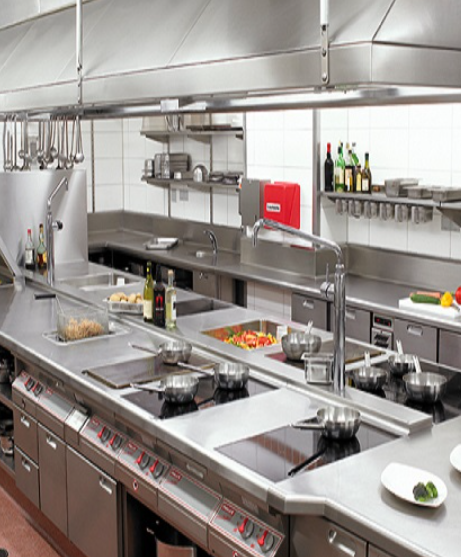Operating a commercial kitchen is a hands-on job that requires attention to detail. Whether you’re managing a restaurant, catering service, or any food-related business, ensuring that your kitchen is well-equipped and properly set up is crucial. The risks of running a kitchen with insufficient equipment or poor organization can be significant, including food contamination or allergies, which can damage your reputation and lead to serious health issues. Here’s what you need to know to set up your commercial kitchen for success.
Get the Right Licenses
Before you can start serving food, you must ensure that your kitchen is licensed according to local regulations. The types of licenses you need will vary depending on your location and the nature of your business. At a minimum, you’ll need a food service license, and if you plan on selling alcohol, a separate liquor license might be required. Additionally, if you want to play music in your restaurant, you may need a music license as well.
It’s important to thoroughly research your local requirements to ensure that you have all the necessary permits. Your kitchen will also need to pass health and safety inspections, which will result in a certification. A good inspection score is essential for building trust with your customers, while a low score can lead to delays or even penalties.
Invest in the Right Kitchen Equipment
Having the right equipment is essential for running a successful kitchen, but it’s important to be mindful of both the costs and the specific needs of your operation. Kitchen equipment can be expensive, but cutting corners can lead to problems down the line. Focus on purchasing high-quality equipment that fits your needs rather than buying every gadget available.
For instance, refrigeration is crucial for any food service business, as it helps keep ingredients fresh and safe. When selecting refrigeration equipment, make sure to choose products that meet industry standards. For example, if you’re using refrigerators with R290 refrigerant, check the purity of the gas to ensure it meets refrigerant-grade specifications.
Consider the types of food you will be preparing and choose equipment that aligns with your menu and operational needs. It’s also important to think about employee training—some equipment may require specific handling skills, so factor in the time and cost for training your team.
Plan Your Menu and Ingredients Wisely
The cost of ingredients is one of the ongoing expenses in a commercial kitchen. While high-quality ingredients are essential for great food, they can quickly add up. When designing your menu, focus on dishes that fit your business theme while also being efficient in terms of ingredient use.
Try to keep the variety of ingredients to a manageable level by using versatile items across multiple dishes. This will help streamline your operations, reduce waste, and make inventory management easier. By optimizing your ingredient list, you’ll be able to handle higher demand without sacrificing quality.
Hire the Right Staff
The success of your kitchen also depends on the people working in it. While hiring chefs from culinary schools can be beneficial, it’s not always necessary. What’s most important is hiring staff with the right skills and experience. A team that’s efficient and knowledgeable will ensure your kitchen runs smoothly and your food quality stays high.
Look for individuals who are passionate about the food industry, adaptable, and capable of working well under pressure. A strong, well-trained team can make a significant difference in the success of your kitchen.
Conclusion
Setting up a commercial kitchen doesn’t have to be overwhelming. By getting the right licenses, investing in the necessary equipment, planning your menu and ingredients carefully, and hiring skilled staff, you can create a kitchen that supports your business’s success. These steps will help ensure your kitchen is safe, efficient, and ready to meet customer demands.


